The Psychopathic Chicken (and Other Lessons of Evolution)
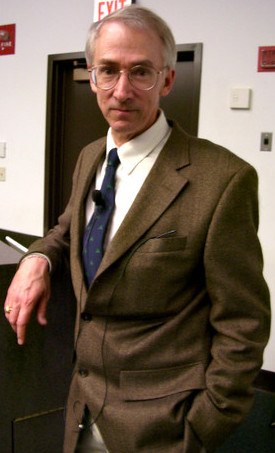 In the fifth chapter of his 2007 book Evolution for Everyone: How Darwin’s Theory Can Change the Way We Think About Our Lives, David Sloan Wilson writes: “It turns out that something very similar to my desert-island thought experiment has been performed on chickens by a poultry scientist named William Muir.” That probably sounds odd. It will likely sound even odder when you find out what the desert-island thought experiment is: a set of three hypothetical situations to explore human morality through the lens of evolution.
In the fifth chapter of his 2007 book Evolution for Everyone: How Darwin’s Theory Can Change the Way We Think About Our Lives, David Sloan Wilson writes: “It turns out that something very similar to my desert-island thought experiment has been performed on chickens by a poultry scientist named William Muir.” That probably sounds odd. It will likely sound even odder when you find out what the desert-island thought experiment is: a set of three hypothetical situations to explore human morality through the lens of evolution.

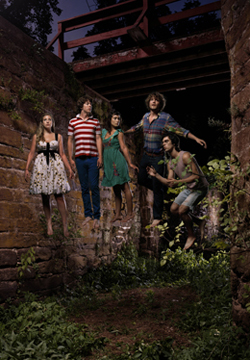 The future of
The future of 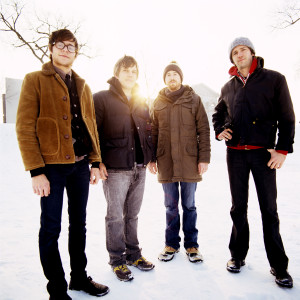 As dismissive as many people are when it comes to blogs, what’s often neglected is that they can sometimes represent genuine grassroots movements. And Minneapolis’
As dismissive as many people are when it comes to blogs, what’s often neglected is that they can sometimes represent genuine grassroots movements. And Minneapolis’ 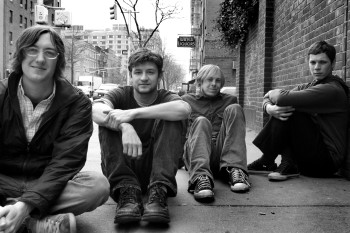 Philip Dickey had a burning question about the pizza place that his band, Someone Still Loves You Boris Yeltsin, would be playing in January. It was not about the size of the room, or the setup, or the acoustics. “Is it really good pizza?” he asked.
Philip Dickey had a burning question about the pizza place that his band, Someone Still Loves You Boris Yeltsin, would be playing in January. It was not about the size of the room, or the setup, or the acoustics. “Is it really good pizza?” he asked. When Spoon was finishing its 2001 album Girls Can Tell, the band didn’t know what to do with “Chicago at Night,” which would close the record. In an interview last week, drummer and co-founder Jim Eno told this story about what he and guitarist, singer, and chief songwriter Britt Daniel decided to do: “I never would have tried this, but Britt and I were so young, and we were just like, ‘Oh yeah, let’s do it.’ We had to turn all the mixes in for mastering. … We have these two versions, and we like different things about each version … . So Britt says, ‘Why don’t we use the left side of this mix and the right side of this mix?'”
When Spoon was finishing its 2001 album Girls Can Tell, the band didn’t know what to do with “Chicago at Night,” which would close the record. In an interview last week, drummer and co-founder Jim Eno told this story about what he and guitarist, singer, and chief songwriter Britt Daniel decided to do: “I never would have tried this, but Britt and I were so young, and we were just like, ‘Oh yeah, let’s do it.’ We had to turn all the mixes in for mastering. … We have these two versions, and we like different things about each version … . So Britt says, ‘Why don’t we use the left side of this mix and the right side of this mix?'”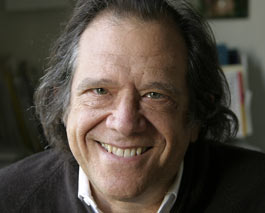 A foolish person doesn’t recognize that one can learn much from opponents. So liberals have begun to understand that they need God on their side as much as the Christian Right does. The lesson from conservatives, said Rabbi Michael Lerner, is that it’s okay to base policy on faith and spiritual values, and it’s important to stand up for what you believe in. “When they come to a decision about what they believe in, they fight for it,” he said of the Christian Right in a recent interview. “And they’re willing to lose an election for the sake of what they believe in.”
A foolish person doesn’t recognize that one can learn much from opponents. So liberals have begun to understand that they need God on their side as much as the Christian Right does. The lesson from conservatives, said Rabbi Michael Lerner, is that it’s okay to base policy on faith and spiritual values, and it’s important to stand up for what you believe in. “When they come to a decision about what they believe in, they fight for it,” he said of the Christian Right in a recent interview. “And they’re willing to lose an election for the sake of what they believe in.”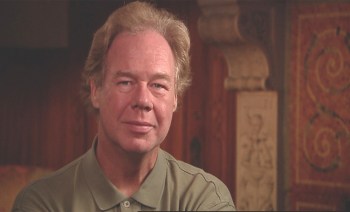 Near the anniversary of the September 11, 2001, terrorist attacks, spiritual-documentary filmmaker Martin Doblmeier conducted a survey on his
Near the anniversary of the September 11, 2001, terrorist attacks, spiritual-documentary filmmaker Martin Doblmeier conducted a survey on his 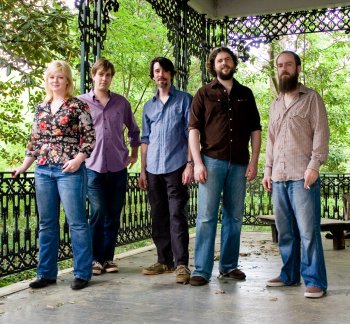 On “Puttin’ People on the Moon,” the Driver-By Truckers’ Patterson Hood sings a litany of tragedies personal and regional: “Mary Alice got cancer just like everybody here / Seems everyone I know is gettin’ cancer every year / And we can’t afford no insurance, I been 10 years unemployed / So she didn’t get no chemo so our lives was destroyed / And nothin’ ever changes, the cemetery gets more full / And now over there in Huntsville, even NASA’s shut down too.” The song is typical Drive-By Truckers: bleak, detailed, populist, Southern, and with enough twangy muscle that you can play it loud and ignore the skill of its songwriting and the loving attention it pays to the downtrodden, heard in the indignant desperation of Hood’s damaged falsetto on the chorus.
On “Puttin’ People on the Moon,” the Driver-By Truckers’ Patterson Hood sings a litany of tragedies personal and regional: “Mary Alice got cancer just like everybody here / Seems everyone I know is gettin’ cancer every year / And we can’t afford no insurance, I been 10 years unemployed / So she didn’t get no chemo so our lives was destroyed / And nothin’ ever changes, the cemetery gets more full / And now over there in Huntsville, even NASA’s shut down too.” The song is typical Drive-By Truckers: bleak, detailed, populist, Southern, and with enough twangy muscle that you can play it loud and ignore the skill of its songwriting and the loving attention it pays to the downtrodden, heard in the indignant desperation of Hood’s damaged falsetto on the chorus.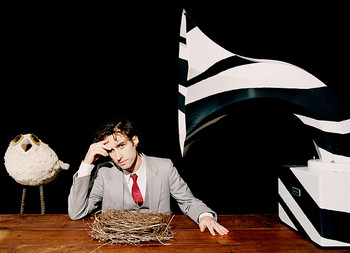 There is nobody like Andrew Bird in the world, a songwriter and a performer who makes his whistling, his glockenspiel, and his violin at home with guitars, drums, and vocals in detailed, pitch-perfect pop songs that never seem precious or forced, as eccentric as they are. But when you’re as idiosyncratic as Bird is, that means there aren’t many people whose vision matches your own.
There is nobody like Andrew Bird in the world, a songwriter and a performer who makes his whistling, his glockenspiel, and his violin at home with guitars, drums, and vocals in detailed, pitch-perfect pop songs that never seem precious or forced, as eccentric as they are. But when you’re as idiosyncratic as Bird is, that means there aren’t many people whose vision matches your own.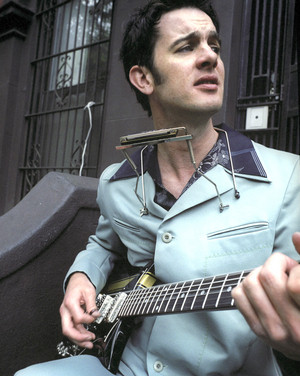 Some things are too embarrassing for public consumption, so the man born Garrett Dutton and known as G. Love exercised some control over the content of his new documentary and concert DVD, A Year & a Night with G. Love & Special Sauce.
Some things are too embarrassing for public consumption, so the man born Garrett Dutton and known as G. Love exercised some control over the content of his new documentary and concert DVD, A Year & a Night with G. Love & Special Sauce.